Over the past couple of years, photographers on Instagram will have noticed a drastic shift in the way it operates. A move away from photography has seen engagement for still images steadily decline as Instagram’s parent company, Facebook, has looked to encourage more video-sharing on the platform.
Why would Instagram want to shift its platform away from its photographic origins? Because as Head of Instagram Adam Mosseri explained in a post shared to Twitter and Instagram this week, it feels that video is currently driving the majority of the buzz and engagement online.
He also revealed that Instagram's survey results suggest people primarily use Instagram to be entertained. And as everybody knows, 'entertainment' often means short-form videos of dance routines, bad pranks, people miming to voice over snippets, endless ads and branded content posts shared by influencers. Not that we're bitter.
But what if your idea of entertainment differs from Instagram's and still includes a flowing timeline of interesting and inspirational photography? If you haven't already, you may be on the lookout for the best Instagram alternatives – and that's where we can help.
To save you the trouble of looking for a photographic raft to jump ship onto, we've rounded up the current best alternatives to Instagram for photo fans. Now, we have to be upfront; it’s slim pickings at the moment. One of the main reasons Instagram was so popular in the first place, and continues to be so, is because it had no equals when it came to photo-sharing apps.
Rivals have emerged in a bid to recapture some of the glory left behind by Facebook’s systematic destruction of Instagram for photographers, but they’re still relatively small. Still, smaller communities make it easier to discover and be discovered by like-minded individuals, so perhaps that will appeal to you. If so, here are the best places to recapture some of the magic of those early days of Instagram.
- These are the best photo editing apps you can download right now
The best Instagram alternatives for photography:

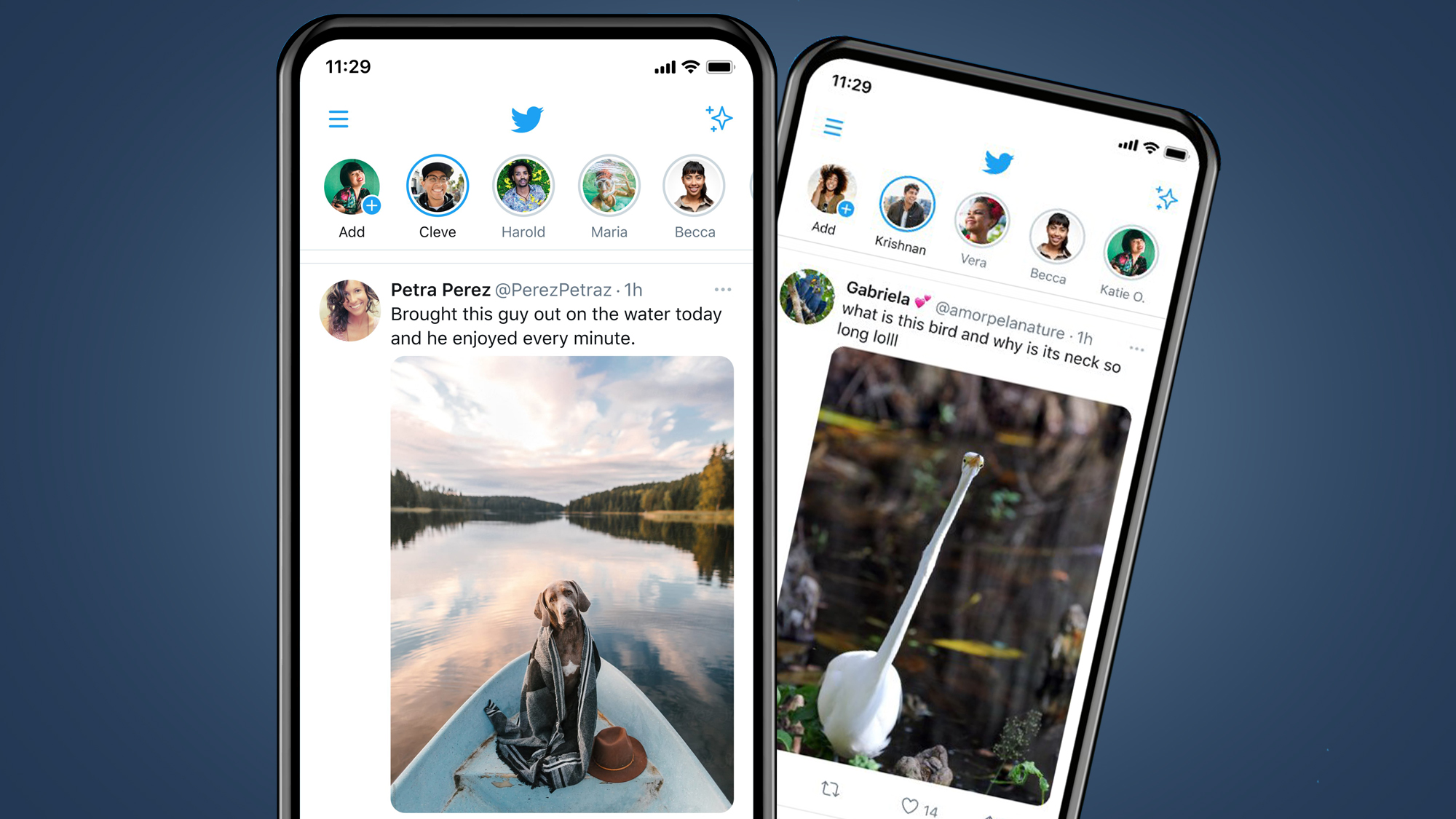
Photographers are flocking to the much-improved social network...
Pros
- Proven and popular
- Access to a huge audience
Cons
- A lot of noise on the platform
- Low resolution video uploads
Hear us out; we know the bird app is notorious for rant threads and problematic attempts at quick-fire wit. But it can be a great place to share pictures, too. Provided you follow the right accounts and ignore the distracting trending topics, Twitter makes it super easy to immerse yourself in the world of photography. You can also use it to take part in fun photographic challenges and competitions.
Twitter has recently plumped up its cushions for photographers, with the long-awaited arrival of full-size image previews (no more "this needs a click" disclaimers) and a recent boost to 4K resolution in the mobile apps.
Another great thing about Twitter is that you can contribute to threads around specific themes. For example, if your favorite camera brand asks for pictures of summer, you will be treated to threads of sun-kissed images shared by hundreds and thousands of photographers who use similar kit to you. You can follow accounts as well as hashtags on Twitter, and can see what’s trending at all times.
Posts on Twitter can be commented on, reshared, liked and bookmarked. In addition, you can add your favorite accounts to 'lists' that you curate and follow. For example, we have a list we've created for portrait photography. Used correctly, Twitter can be an entertaining way to find and connect with inspiring photography and learn from other photographers.
Best of all? Unlike Instagram, Twitter lets you choose whether you want your timeline to be primarily chronological or curated.

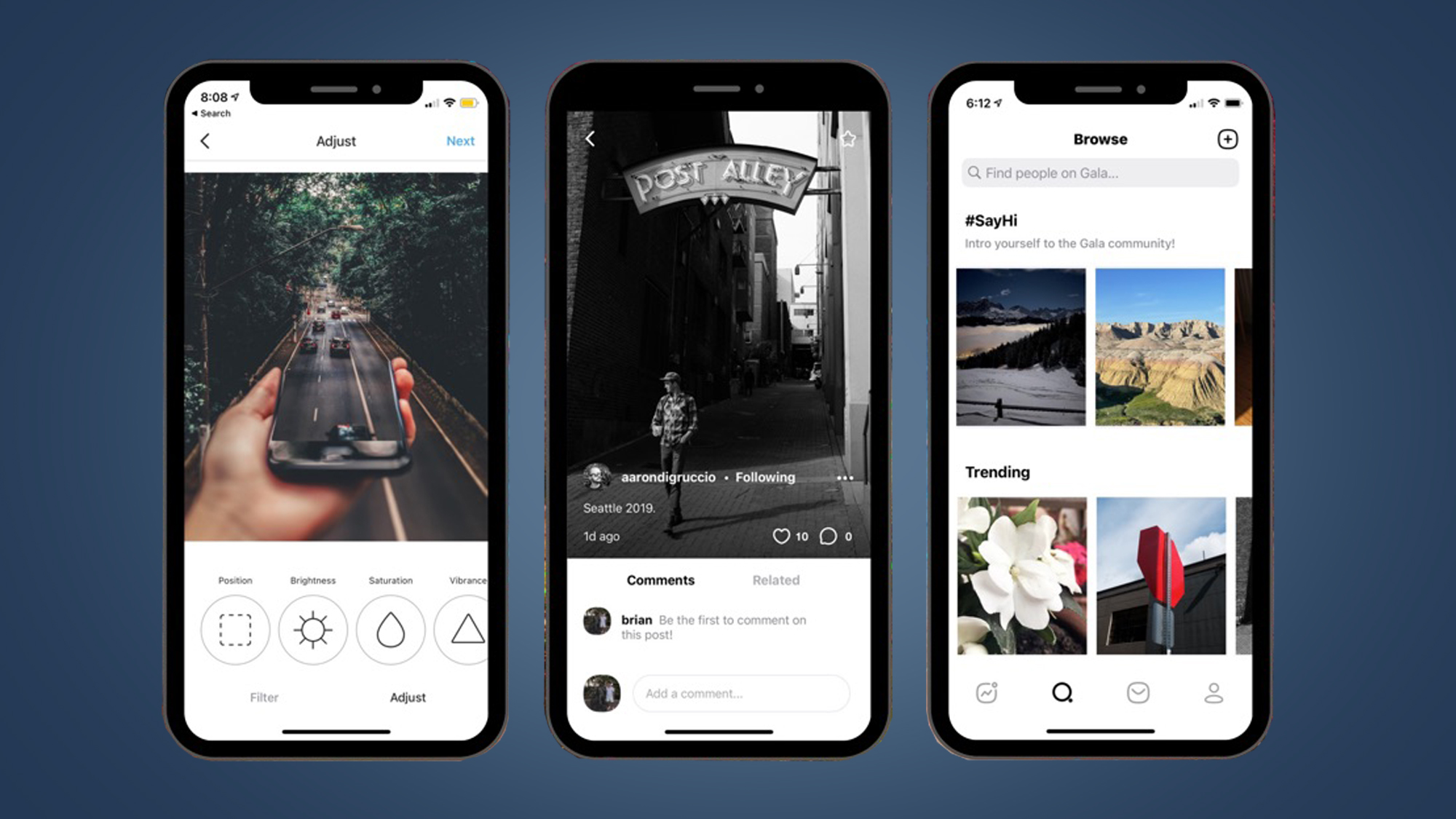
Gala
For iPhone users, this might just be the closest thing to early Instagram...
Pros
- Closest alternative to original Instagram
- Chronological Timeline
- Simple and intuitive UI
- Respects user privacy and doesn’t collect usage data
Cons
- iPhone-only for now
- Still has a very small user base
Never heard of it? Hopefully you can thank us later. Gala has been created by a small team of entrepreneurs and developers in New York, with the aim of recapturing much of what has been abandoned by Instagram. The founder was moved to start working on this app when Instagram added Reels in November 2020, which was the final straw.
Launched in May 2021, Gala offers a simple interface, reminiscent of OG Instagram. It takes less than a minute from downloading and signing up to posting your first image. One of the keys behind this simplicity is that Gala uses your iOS account as your login. The benefit to this is two-fold; they don’t collect your personal data or GPS location, and it also means you benefit from Apple’s renewed push to protect user privacy.
Best of all, Gala offers users the choice between a chronological timeline of who you choose to follow and a discovery page, which uses algorithms to show you new content. There’s no reach-throttling, meaning you should be able to enjoy unfettered organic reach. Gala deploys an intuitive user experience, which allows you to swipe left on photos you don’t like – this helps Gala learn what type of content to show you.
As it’s still relatively new, there are some kinks to iron out, but overall we're enjoying the ease of use and simplicity of its design. Other startup challengers such as VERO have come close to filling the void that Instagram’s evolution has created. But by focusing on doing the basics well, Gala stands out as the current most promising Instagram alternative that we've come across yet.

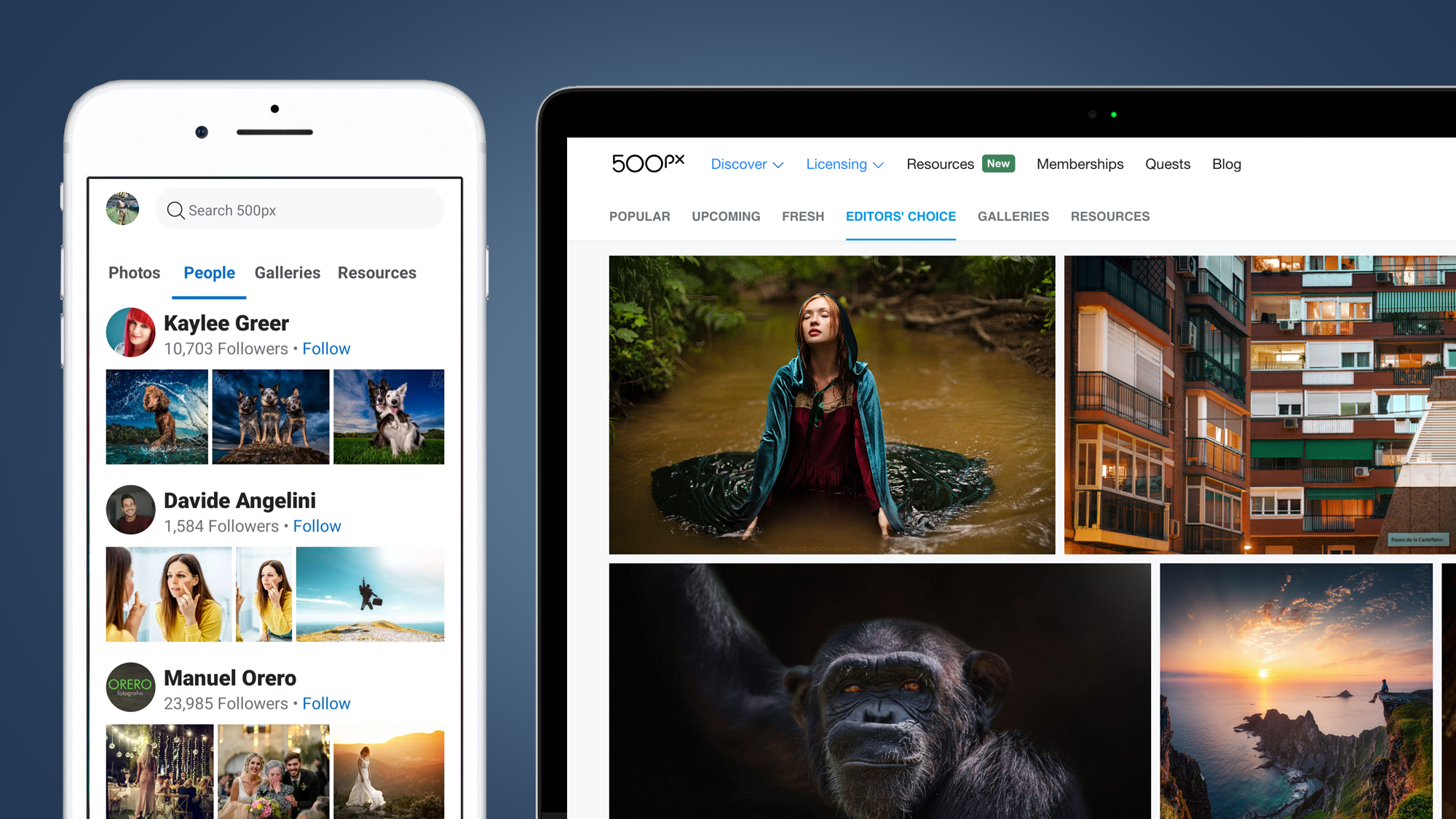
500px
For a price, 500px offers a polished mobile and desktop experience...
Pros
- Unlimited high resolution uploads with paid account
- High quality photo-centric platform
- Ability to license images
- Build portfolio site with Pro account
Cons
- No pricing control over licensed images
Pronounced 'five hundred p-x', 500px is a great Instagram alternative because it provides both an attractive full-screen desktop experience and a slick app. If you're prepared to invest a little time and money into it, it can be an inspirational place to view and share your photography.
Although it's grown to offer a lot more over the years, 500px was initially built as a social media platform specifically for photographers. This means it's user interface is photography-centric and gives prominence to Pro account users. There are three types of accounts; Free, Awesome and Pro. A Free account lets you to upload seven images per week, but the rest of 500px features are reserved for paying customers. Those additional features come with an Awesome account for $3.99 a month (around £2.90 / AU$5.32). This includes unlimited uploads, ad-free browsing, statistics, profile badges, gallery slideshows and directory listing.
If you go for the full-fat Pro account, which currently costs $7.99 a month (about £5.79 / AU$10.66), you can build a portfolio website within the platform, add resources to 500px resource hub, enjoy full profile customization and get priority directory listing. In terms of value for money, a Pro 500px may work out as a more cost-effective alternative to building and maintaining a personal website, which is what many photographers use the platform for. All accounts allow photographer images to be licensed, for 60% of the fee, but unfortunately you cannot set your own pricing.
As a community tool, it’s easier than Instagram to discover new photographers and be discovered by others on 500px. You can do this in a couple of ways; via the Home timeline, which includes popular featured images and editor’s choices, and exploring the Discover, Photos, People, Galleries and Resources sections. If that's all a bit serious, you can also join groups and participate in photo challenges for cash prizes.

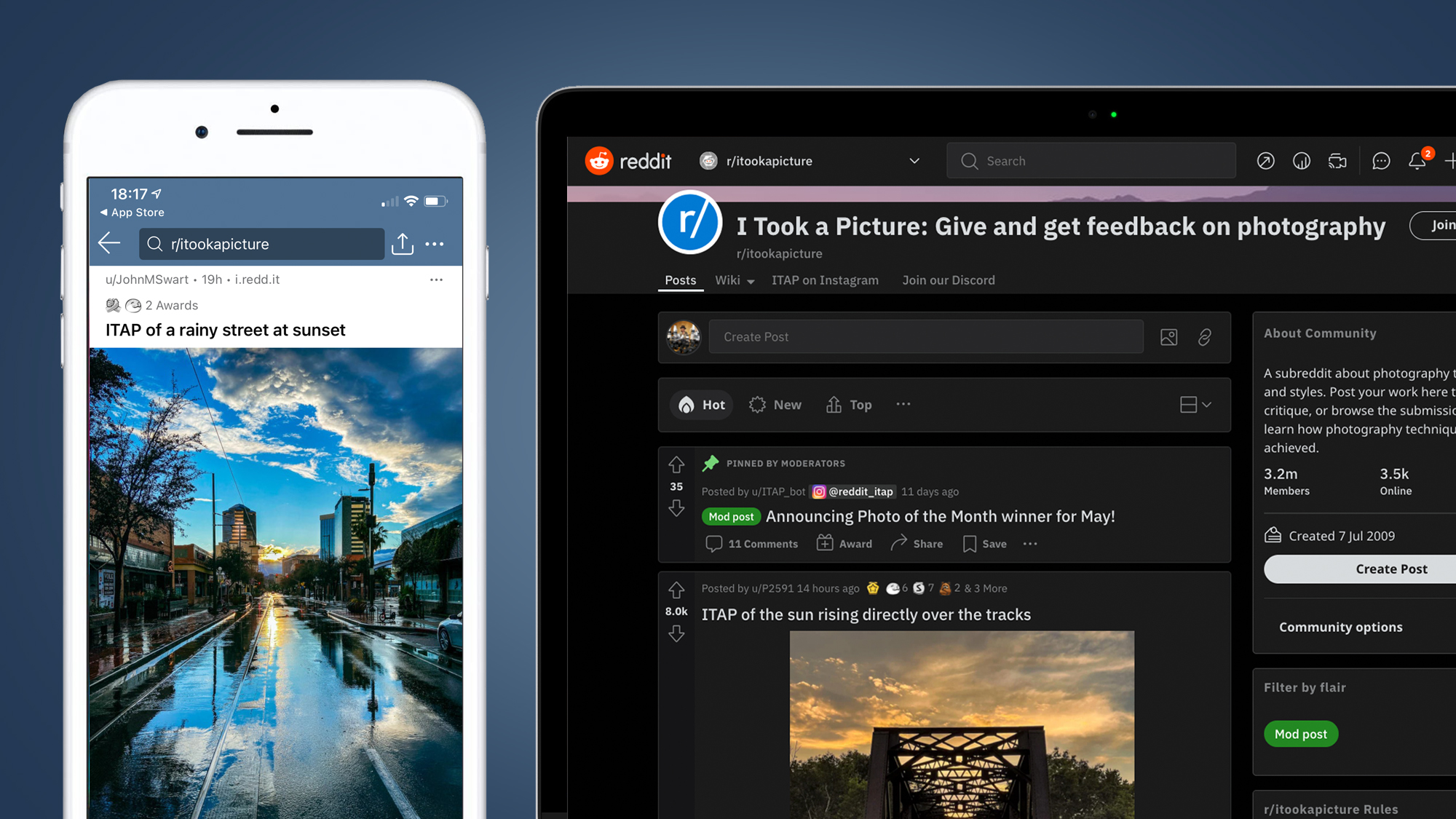
It's sprawling and a little cliquey, but Reddit is big on community...
Pros
- Great place to discover new content
- User ranked posts
- Multiple ways to share content
Cons
- Size of platform can be overwhelming
Often making headlines for cyber social activism, Reddit is a behemoth of a platform that's available on app and desktop. It contains seemingly endless numbers of micro-communities that coalesce around niche threads on practically every conceivable subject area – including lots on photography.
Post types include images, video text and links, and users can upvote or downvote content based on their interests. Comments and posts that receive a lot of upvotes get to hold a more prominent position within the platform, which in turn means more people will see and engage with it.
It sounds similar to how Instagram works, but Reddit doesn’t solely deploy mysterious algorithms to do the ranking of posts. As it also requires people to vote up and down, it offers a fairer reflection of the community’s interests at large. Reddit gives you the ability to sort posts by Best, Hot, New, Top, Controversial and Rising – giving you multiple ways to discover content.
It can be overwhelming at first, at least until you find your tribe. But if you have a very specific interest area in photography, Reddit will likely have a conversation thread, also known as a subreddit or “r/” dedicated to it. And if it doesn’t you can create one and share your work or interests with other Redditors. For starters, try its subreddits on Street Photography, I Took A Picture, Beginner photography and Long Exposures.
As of the start of 2021, Reddit has over 1.5 billion monthly users, making it more visited than Twitter, eBay and LinkedIn. To help you avoid getting overwhelmed, we'd recommend starting slow and exploring the various photography-related threads by using its search function.
The Subreddit r/Photography has 4.1 million registered users, so there’s plenty of discussions to dip into. We'd also recommend reading the rules as each subreddit has its own moderators, etiquette and guidelines. Observe the rules to avoid your posts being removed, and we're sure you’ll eventually find yourself engaged and entertained.

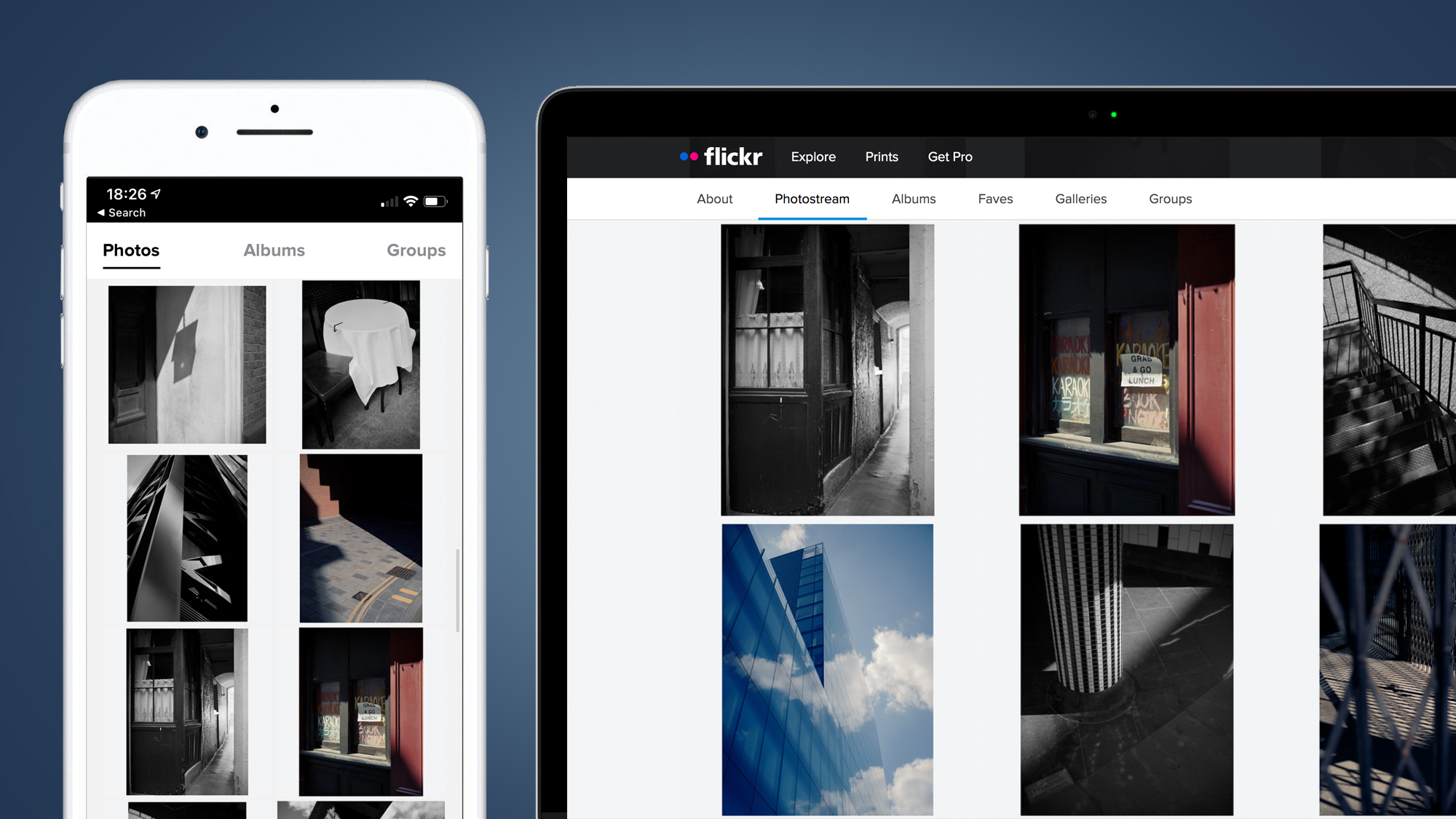
Flickr
Still better on desktop than mobile, but a great home for keen snappers...
Pros
- Superb desktop experience
- Attractive premium account price and features
- High number of high-res image uploads
Cons
- App is still lacking
- Not a convincing mobile social media platform
Flickr is one of the photo-sharing pioneers, making it particularly popular with enthusiast and some pro photographers. While it slipped into the shadow of Instagram after failing to adapt to the world of smartphones, it's recently make something of a comeback and is now a fully-fledged social media platform with an app and cloud storage services.
There are two tiers of users on this platform; Free and Pro. With a free account, you can upload up to 1,000 pictures and videos. There’s also a cap on individual file sizes so you will have to keep your pictures under 200MB and video clips under 1GB, which should be manageable for most. If you decide to pay $60 / £56 per year or $6.99 / £6.49 per month, you’ll be able to enjoy an ad-free experience, page stats, unlimited full-res uploads and automatic file backup. Pro membership also comes with perks including exclusive Adobe and SmugMug discounts.
Some may be disappointed to learn that Flickr doesn’t currently support any raw format uploads, so if you do upload uncompressed image files they’ll be squeezed into JPEG, PNG or GIF formats. But if you plan on using it more for its social aspects, this may not be an issue to you at all, at you’ll be able to share high resolution JPEGs with your audience.
We find Flickr’s user interface to be optimized for desktop and passable on the app, although in our experience the Android app can be a little buggy at times. Still, as a halfway house between cloud storage and social media platform, Flickr occupies a unique space. It’s Pro plan is affordable and comes with a decent set of features. If you’re keen to attract and engage with a community that has more of a photography club feel, Flickr could be the platform for you.

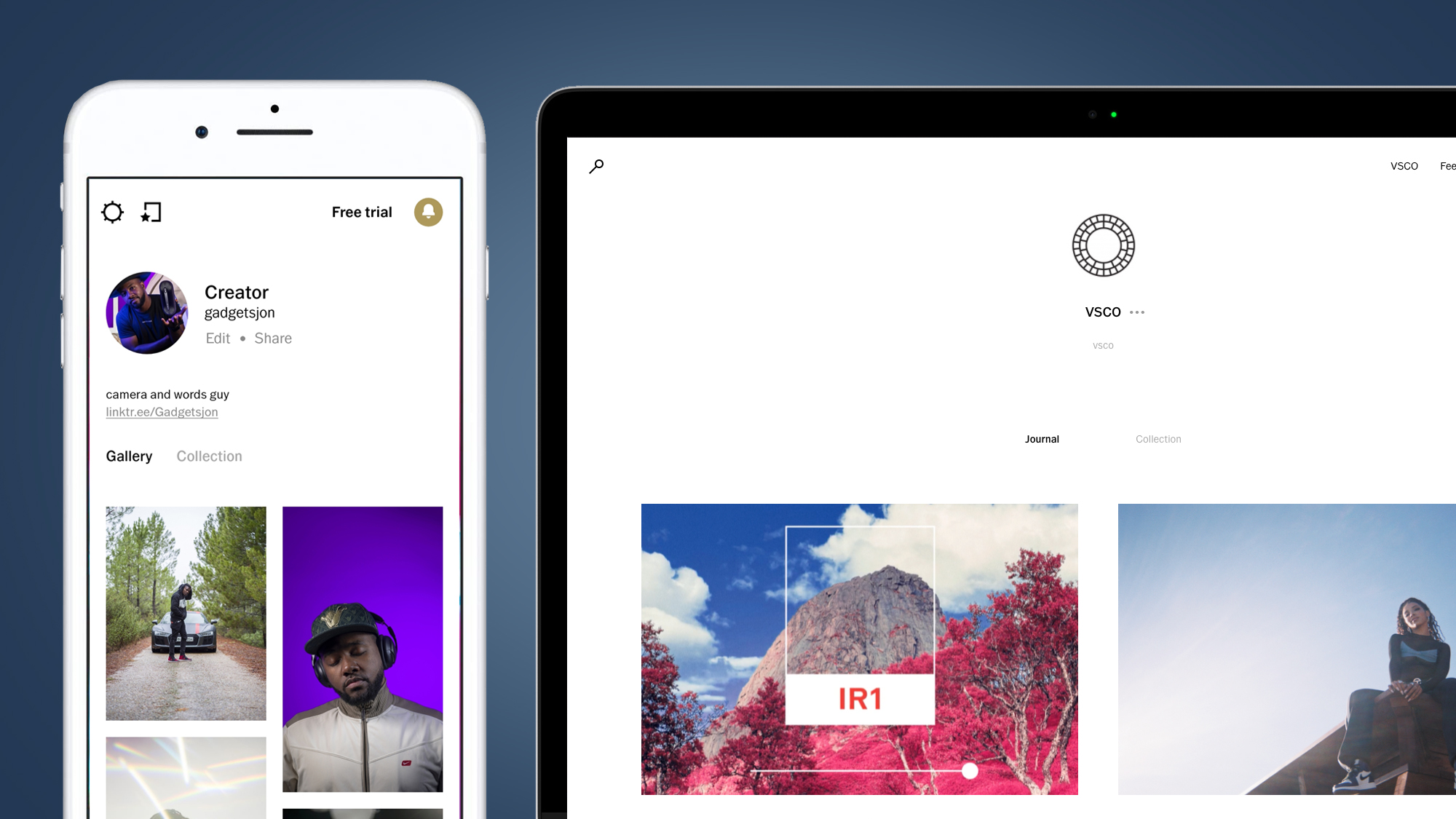
VSCO
Not just about filters and presets, VSCO has a unique mix of talents...
Pros
- Great all-in-one camera/editor/social app
- Bubbling community of creatives
Cons
- Limited engagement tools
VSCO rose to prominence in 2012 as an innovative third-party camera app. It excels in areas that made Instagram popular in the early days in terms of adding filters and editing pictures, but takes things further by being a unique combination of a camera, editor and image inspiration app.
VSCO has a library of over 200 presets, most of which need a subscription to access. But membership, which costs $19.99 (about £14.50 / AU$26.66) with a free seven-day trial, adds further creative tools, community challenges and unlocks exclusive educational content.
Another reason why it makes a good Instagram alternative is VSCO Grid, which is its social media element. Interestingly, Grid doesn’t allow you to comment, like posts or keep up with who’s following your work. The purpose of it is to showcase photography and provide a space to be inspired. You can also create your own presets and save them with a paid for account. And if you want a more engaging response to your VSCO creations, you can always save them to your device or share them to another platform.
The user interface of VSCO is approachable and professional looking. Our only issue with it in terms of the user experience is that it can be a little too eager to get you to sign up for a subscription. It also seems to run better on iOS rather than Android devices.
- Check out our guide to the world's best video editing apps
from TechRadar - All the latest technology news https://ift.tt/3qHHMFz
Aucun commentaire: